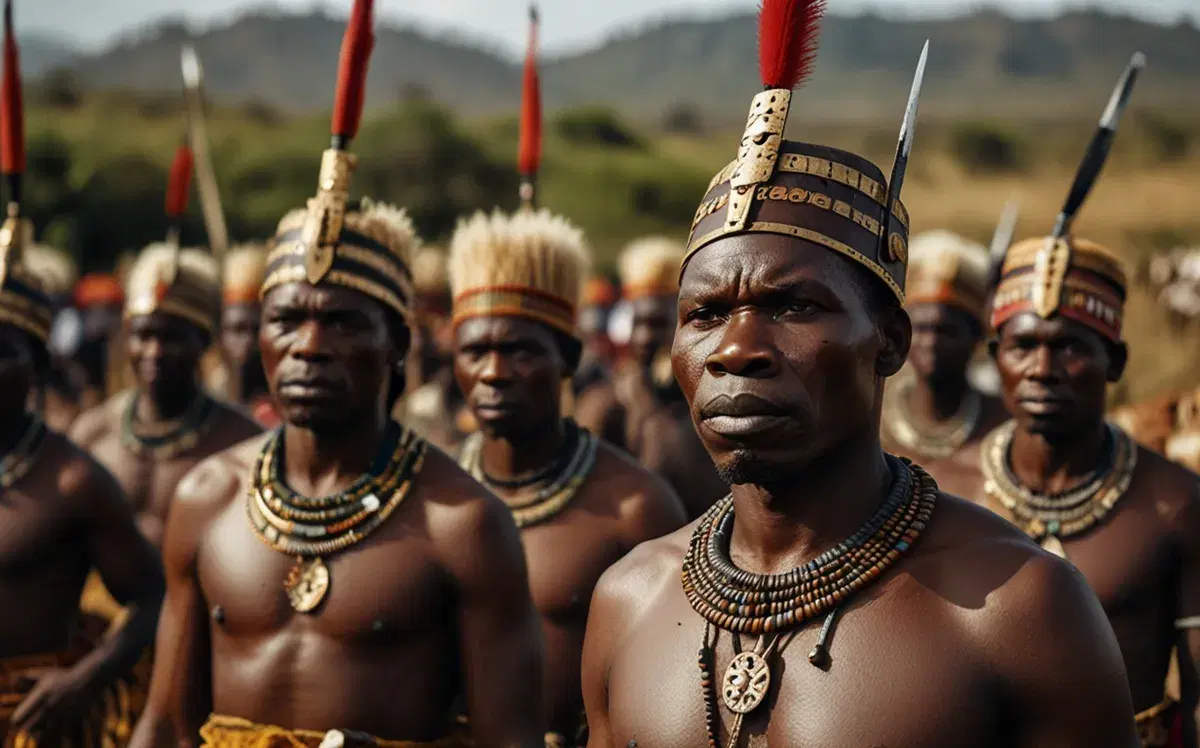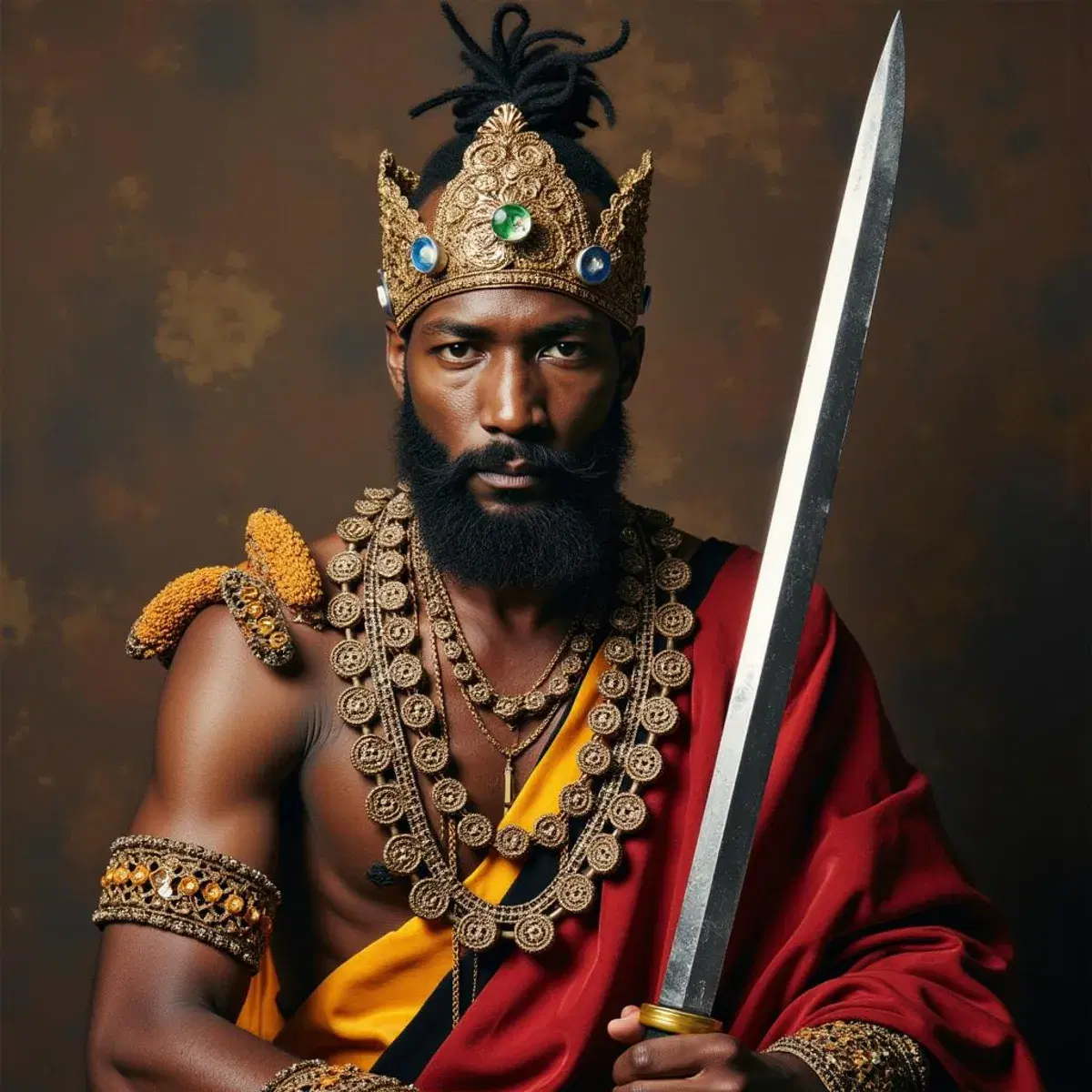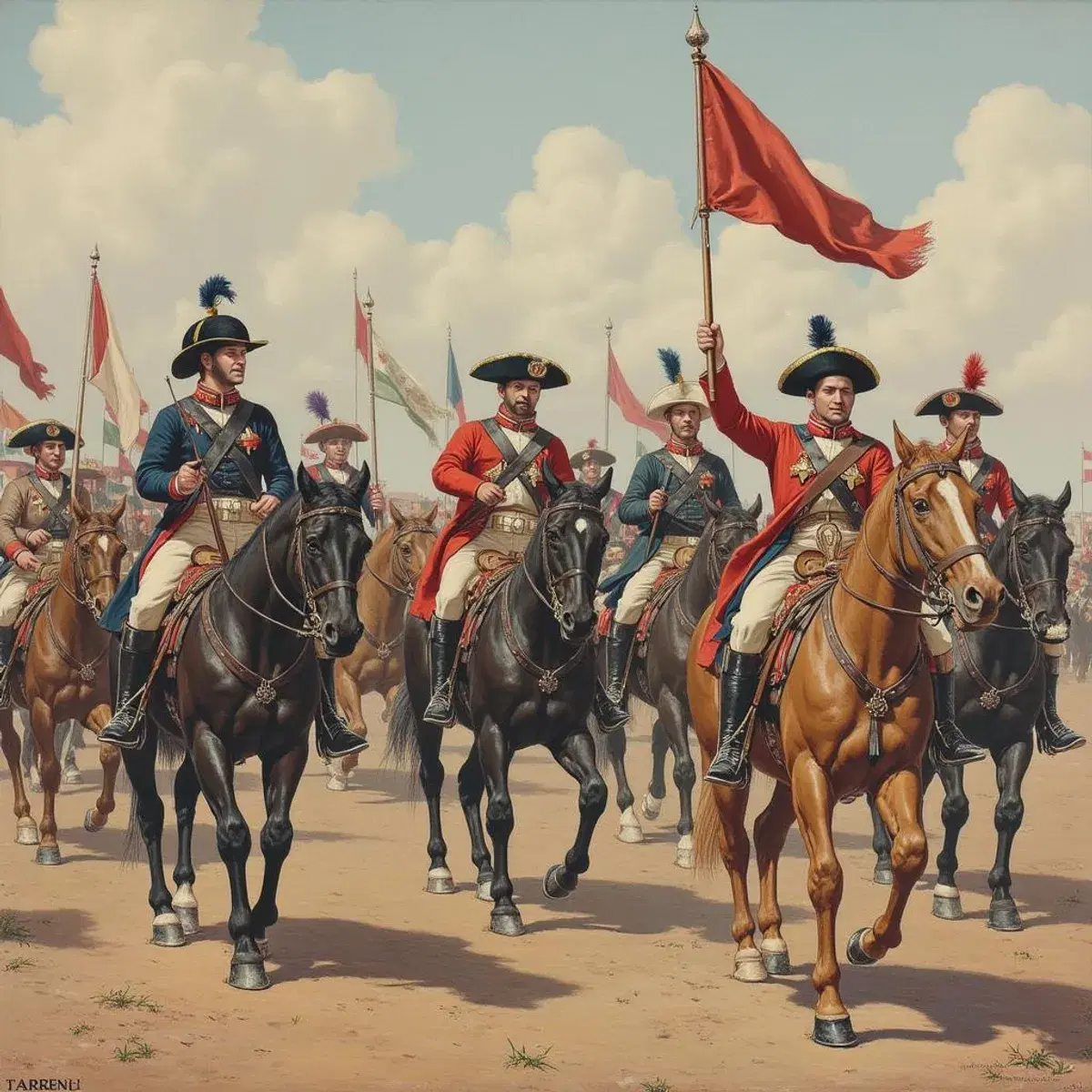History of the Zulu Kingdom
The Zulu Kingdom, also known as KwaZulu, was a small but mighty state located in what is now South Africa. Its rich history is filled with dramatic battles, strong leaders, and incredible resilience in the face of hardship. The Zulu people’s story is one of courage, survival, and determination as they resisted colonial powers and preserved their identity through generations.
Zulu People and Their Origins
The Zulu people are part of the larger Bantu migration that spread across Southern Africa thousands of years ago. They share cultural ties with other African groups, such as the Great Zimbabwe civilization. The Zulu Kingdom emerged as a dominant force during the early 19th century, thanks to its strong military organization and brilliant leadership.

Zulu Peoples
One of the most famous Zulu leaders was Shaka Zulu. Shaka’s rise to power was remarkable. Born as the illegitimate son of Chief Senzangakona and Nandi, Shaka faced rejection and hardship. He and his mother sought refuge with the Mthethwa people, where Shaka grew into a fierce warrior under the guidance of Dingiswayo, the Mthethwa leader. After the death of his father, Shaka claimed the throne with Dingiswayo’s support, transforming the Zulu tribe into a powerful kingdom.
Shaka Zulu: The Builder of an Empire
Shaka revolutionized Zulu warfare. He introduced new weapons, like the short stabbing spear (assegai), and battle formations, such as the famous "bull horn" attack. His strategic changes made the Zulu army one of the most feared forces in Africa.
Shaka’s reign, however, was marked by brutality as well. He expanded his kingdom through conquest, forcing neighboring tribes to either join the Zulu or face destruction. Despite his military success, Shaka’s rule came to a violent end in 1828 when his half-brothers, Dingane and Mhlangana, assassinated him.

Shaka Zulu
Dingane’s Rule and the Arrival of the Voortrekkers
Dingane became king after Shaka’s death, but his reign faced challenges. During this time, Dutch settlers known as Voortrekkers began moving into Zulu territory, searching for land.
In 1837, Voortrekker leader Piet Retief negotiated a land deal with Dingane. The agreement initially seemed peaceful, but Dingane later accused Retief of treachery and ordered his execution. This betrayal led to further bloodshed, including the Weenen Massacre, where hundreds of Voortrekkers were killed.
The Voortrekkers retaliated at the Battle of Blood River in December 1838. With just 470 men, they defeated Dingane’s massive Zulu army using superior weapons and tactics. Defeated and disgraced, Dingane fled and was later killed, leaving his half-brother Mpande to claim the throne.
Mpande’s Reign and the British Influence
Mpande ruled from 1840 to 1872, a period marked by relative peace but growing foreign influence. He maintained alliances with the British, who were gaining control in the region. However, internal struggles remained, and Mpande’s sons, Cetshwayo and Mbuyazi, fought over who would succeed him.
In 1856, Cetshwayo defeated his brother in a bloody battle and became the next Zulu king in 1872. Under Cetshwayo, the Zulu Kingdom reached the height of its power, but it soon faced a new threat—the British Empire.
Anglo-Zulu War
The British Empire wanted to control the region, and in 1878, they issued an ultimatum demanding that Cetshwayo disband his army. When Cetshwayo refused, the Anglo-Zulu War broke out in 1879.
The Zulus started the war with a stunning victory at the Battle of Isandlwana on January 22, 1879. Despite being poorly armed compared to the British, the Zulu warriors used their skills and numbers to overwhelm the enemy. This victory shocked the British and proved that the Zulus were a force to be reckoned with.
However, the Zulus suffered a major defeat later that day at Rorke’s Drift, where British soldiers defended their position heroically. The final blow came at the Battle of Ulundi in July 1879, where the Zulu army was crushed, ending the war.
Cetshwayo was captured and exiled, and the Zulu Kingdom was divided into smaller territories ruled by appointed chiefs. This division weakened the Zulus and led to further internal conflicts.

Anglo-Zulu War
Rebuilding and Resistance: The Zulu Kings After Cetshwayo
Cetshwayo briefly regained his throne in 1882 but faced opposition from rival chiefs. He was wounded in battle and died in 1884, leaving his son, Dinuzulu, to inherit a broken kingdom.
Dinuzulu tried to rebuild by forming alliances, but these efforts backfired. Boer mercenaries who helped him demanded land as payment, creating new tensions. In 1887, the British officially annexed Zululand, ending its independence.
Dinuzulu later faced charges of rebellion and was exiled. He died in 1913, marking the end of an era for the Zulu monarchy.
Zulu Legacy: Pride and Perseverance
Despite losing political power, the Zulu people kept their traditions and pride alive. Leaders like Solomon kaDinuzulu and Mangosuthu Buthelezi worked to preserve their culture. During Apartheid, the Zulu were forced into separate territories called "homelands," but their resistance never faded.
After Apartheid ended in 1994, KwaZulu became part of the province of KwaZulu-Natal. Today, the Zulu people continue to celebrate their history, including reenactments of the Battle of Isandlwana, as symbols of their strength and resilience.
Conclusion
The story of the Zulu Kingdom is one of bravery, betrayal, and survival. From Shaka’s rise as a military genius to Cetshwayo’s resistance against the British, the Zulu people demonstrated courage in defending their land and culture.
Even though they lost their independence, their legacy remains strong. The Zulu spirit of unity and pride continues to inspire people today.





